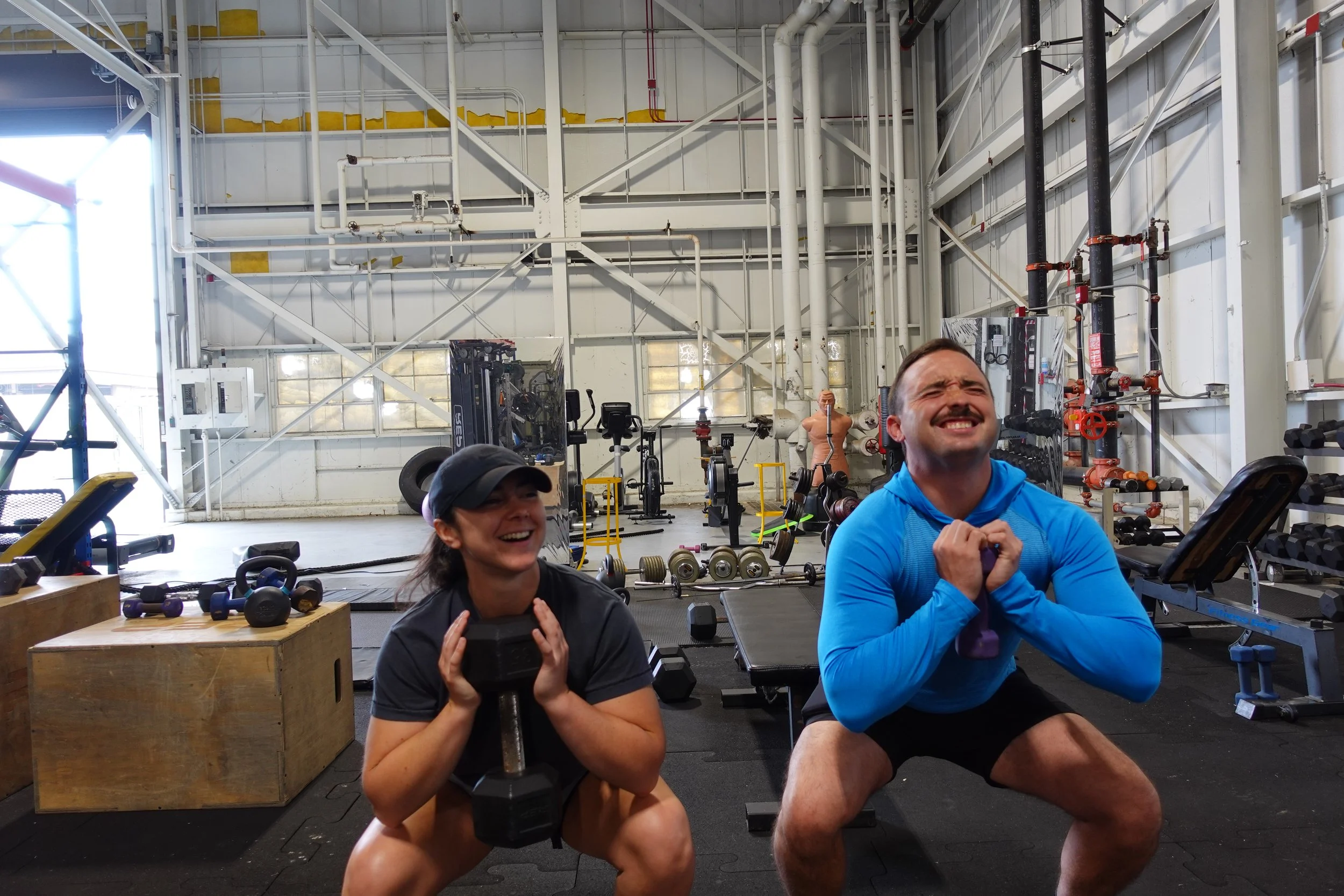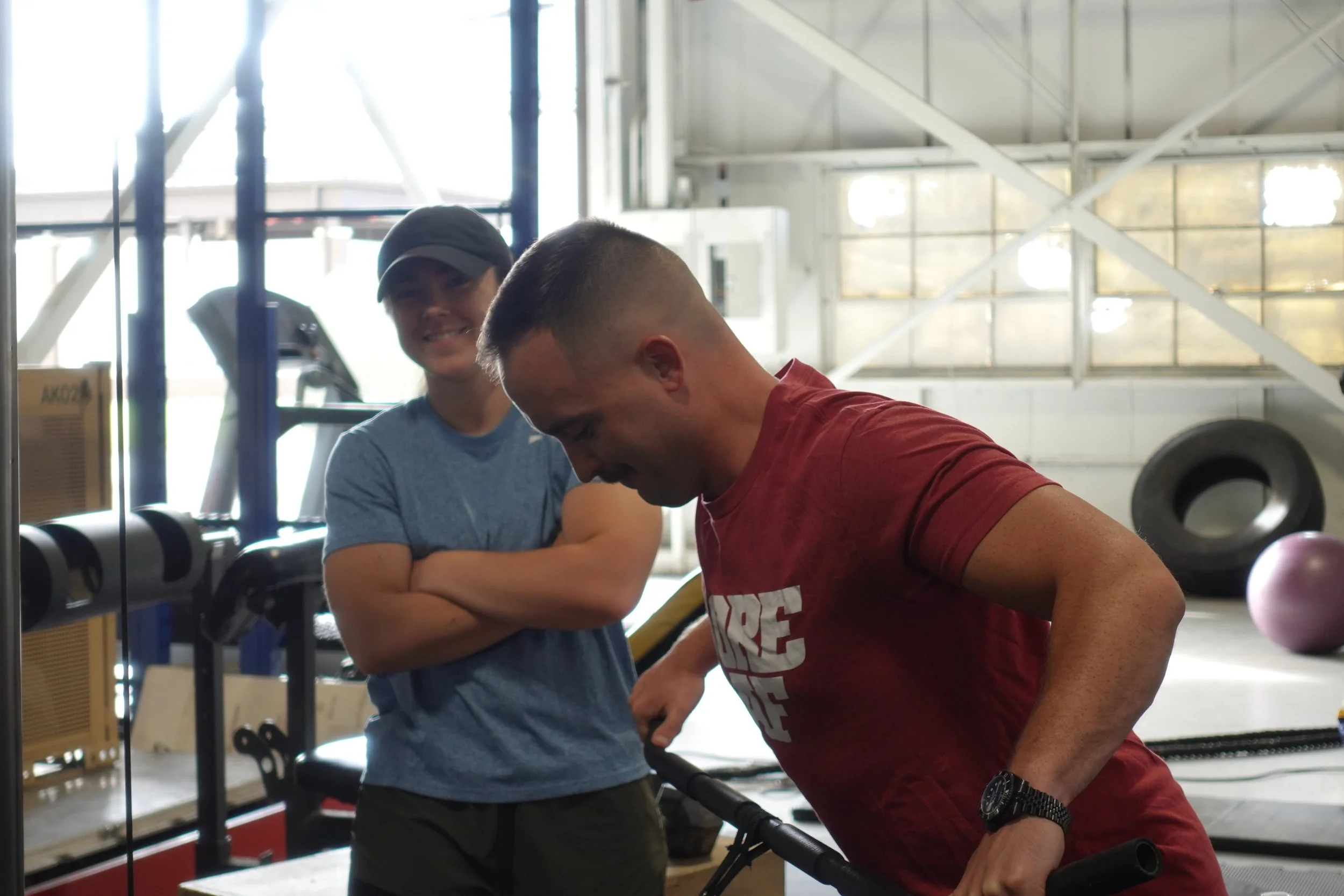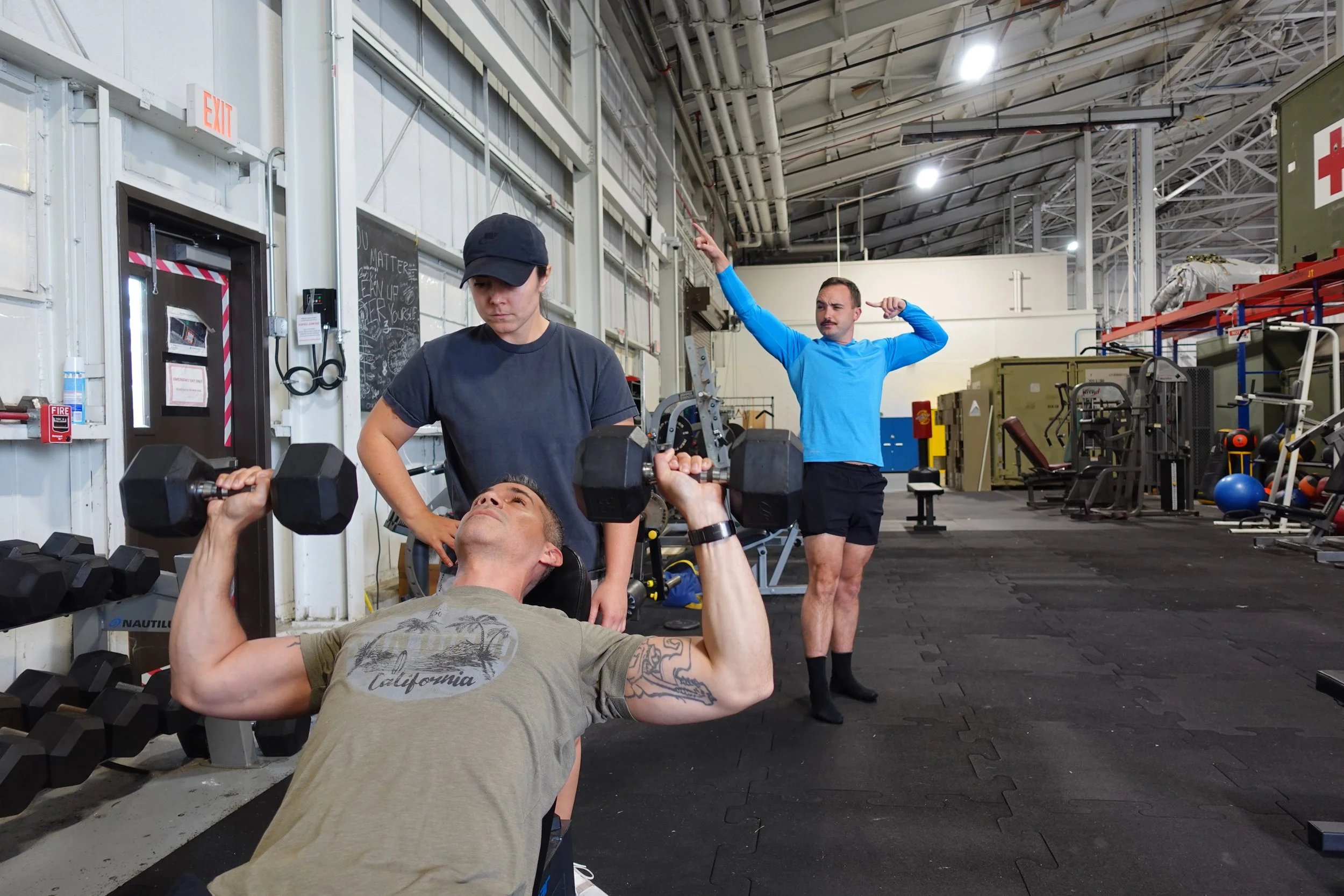Personal Training
Rooted in Stoic philosophy, we’re here to help you sharpen body and mind, one rep at a time.
“First say to yourself what you would be; and then do what you have to do”
—Epictetus
Our Services
This is more than training — it’s about discipline, resilience, and building strength that lasts.
-
The first thing we accomplish is a consultation. Once an understanding of your goals and fitness level is established, we can begin to make a fitness plan just for you.
-
One-on-one personal Training is a great way to set a foundation for you, set goals, and make a plan for you to succeed. This is a great tool to find your confidence in the gym.
-
If Personal Training Isn’t your thing - Workout programs that you can use on your own can be made specifically for your goals using the Superset App
-
If you want guidance but also want to train on your own, we can set you up with a plan and keep in touch! We can learn together on what works best for you. When you have questions, you will have access to your coach through the Superset App
At Stonepoint Strength, we believe true strength is more than muscle — it is the harmony of body, mind, and spirit. Inspired by Stoic philosophy, we train not only for performance, but for resilience, discipline, and meaning.
Like a stone shaped by time, strength is forged through perseverance. Training becomes our daily practice of virtue: cultivating courage under pressure, wisdom in choice, temperance in discipline, and justice in how we lift up those around us.
We reject ego and fads. Instead, we honor the fundamentals: movement, recovery, nourishment, and nature. Every rep, every breath, every setback is an opportunity to grow, not just as an athlete, but as a human being.
Our vision is to guide individuals toward a life of vitality, connection, and purpose. Strength is not the end, it is the path.
Stonepoint Strength: Where discipline meets resilience, and training becomes a way of life.
Stonepoint Philosophy
"We suffer more often in imagination than in reality."— Seneca
"It's not what happens to you, but how you react to it that matters." —Epictetus






